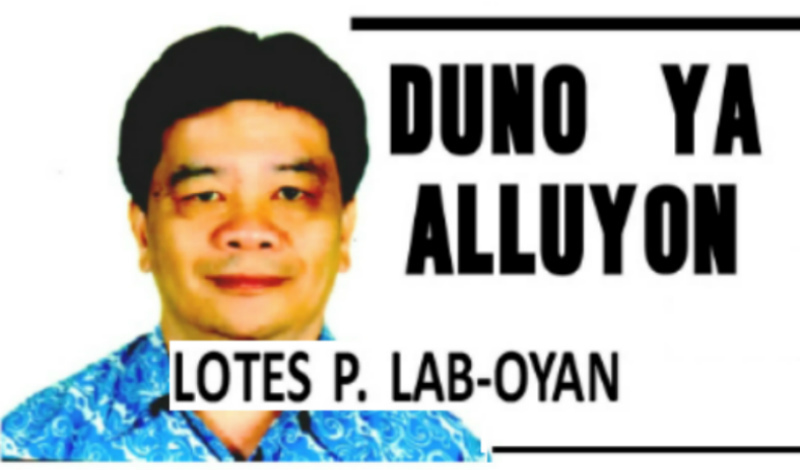The policy on gender and development of every cooperative starts with the recognition that men and women have equal rights. This entails the necessity to balance representation of both sexes in the organizational structure and in various cooperative activities. It is a common observation when we enter offices that we often pay attention to the heads of offices particularly those involved in the operations not to mention their sexes.
The issuance on the Guidelines on Mainstreaming Gender and Development in Cooperatives (CDA M.C. 2013-22) and CDA M.C. 2017-04 “Tool for Assessing Progress of Gender Equality in Primary Cooperatives as Supplemental to CDA M.C. 2013-22” were crafted based on certain laws and issuances like the Philippine Constitution; Executive Order 273 “Otherwise known as the Philippine Plan for Gender Responsive Development (PPGD-1995-2025); Medium Development Goals (MDGs) now called Sustainable Development Goals (SDGs); Philippine Commission on Women; United Nations Fourth World Conference Platform for Action; PCW-National Economic Development Authority (NEDA)-Department of Budget and Management (DBM) Joint Circular No. 2012-01 and RA 6939.
As some cooperatives are at a loss on how to start with their Gender Development Program it requires revisiting existing systems of every cooperative. Other cooperatives might have advanced in their advocacies and policies regarding the pressing issue at hand but most cooperatives need to come up with strategies on how to start or enhance existing cooperative policies. For cooperatives that have not yet adopted the provisions on gender and development, I propose that the following measures and steps be undertaken: 1. Board of Directors, Committees and management to review the provisions of CDA Memorandum Circular Numbers 2013-22 and 2017-04 and other laws and issuances related to GAD and gender equality; 2. BODs, Committees and management to review cooperative Articles of Cooperation and By-laws to know whether provisions on GAD and gender and equality were provided or included; 3. BODs, Committees and management to check contents of Manual of Policies/Operations and Cooperative Development Plans whether there are provisions on Gender and Development and if provisions are gender friendly; 4. BODs, Committees and Management to initiate Amendment of provisions of Articles and by-laws to include Committee on Gender and Development and gender equality to be approved by the General Assembly for registration with CDA; 5. Compliance and Implementation of the provisions of CDA M.C. 2013-22 and M.C. 2017-04 thru: a. Enactment of Board Resolution to Appoint GAD Committee and Focal Person; b. Crafting/Enhancement of Policies to include Gender and Development; c. Crafting/Enhancement of Cooperative Development Plan to include GAD Education Programs/Activities/Projects and Budget; d. BODs and Management to ensure the presence of GAD Support Systems and Services are in place in the cooperative.
Further, different institutions including cooperatives have diverse culture brought about by various ethnic groups that comprise the membership; workforce and officers. Such diversity brings in individual perspectives that require policy to level-off and guide all stakeholders pertaining to gender and development and gender equality.
In my opinion policy on Gender and Development can be holistic when not treated as distinct or detached from existing policies of institutions. Ensuring that policies, thrusts and programs on GAD and gender and equality are embedded in all aspects of the organization promotes awareness that can bring positive organizational culture towards realization of gender and development advocacies. Making GAD and GE as integral part of the operations and structure of institutions help develop a habit that protects the welfare of all members and stakeholders. Anchored on the belief that that opportunities are for all those involved, the essence of equal treatment of men and women in the workplace manifests GAD compliance.
Further, it would be fitting for all institutions including cooperatives to seriously consider the significance of GAD and gender equality in their respective jurisdiction. Every employee and employer desires a happy work environment where rights are respected including those of customers and stakeholders. The impact of gender and equality can be considered fulfilled when the cycle of happiness is completed especially when it extends beyond the office and affects the quality of life of those involved in the process. Indicators of development are not only reflected in figures it can best be felt when people enjoy positive work ethics with a happy life that reaches the home.
Finally, to all those who desire for a happy workplace and family, allow me to borrow and share part of a sermon by Bishop R. Marigsa last Sunday about Father’s Day and empowerment. For every Christian to sustain his faith in Christ and help in the ministry of the church there is a need to exert effort; employ example; encourage excellence; and ensure empowerment.













